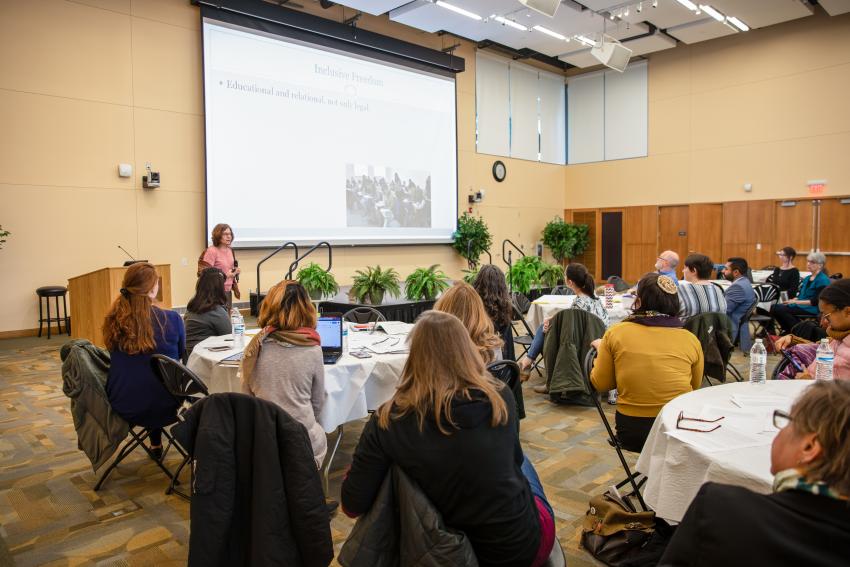Open Expression Task Force Welcomes Dr. Ben-Porath, Discusses Drafted Principles

“We have an opportunity to see each other and recognize our differences,” Dr. Sigal Ben-Porath, professor of Education, Political Science, and Philosophy at the University of Pennsylvania and author of Free Speech on Campus, said to members of the Arcadia community on Feb. 22. “We have to create conditions where people can continue their dialogue.”
The event, organized by the Open Expression Task Force, was designed to introduce the University community to open expression and stress the importance of having campus-wide principles in place. Dr. Ben-Porath opened the dialogue for the University community to discover how campus could embrace open expression, which concluded with roundtable workshops on draft principles that the Task Force developed through situational analysis.
Through examples gathered in her work at the University of Pennsylvania where she has chaired the school’s Open Expression board since 2015, Dr. Ben-Porath discussed the difficulty of balancing open expression and dignitary safety. In particular, she highlighted a controversial conservative speaker that was invited to by a student group, and how students peacefully protested her visit outside of the venue. She also noted that students against the speaker’s message attended the presentation in order to challenge those viewpoints.
“It’s important that we don’t look to protect the speaker from disruption,” said Dr. Ben-Porath. “You need to publicly show that you embrace open expression but you don’t align with the views of [controversial speakers]. You need to engage the community. It’s more powerful for the community to reject this person than the administration.”
Each table then used the Task Force’s draft principles and Dr. Ben-Porath’s lecture to analyze case studies and situations that the Task Force compiled based on events that had occurred at Arcadia and other institutions, including art exhibitions that made people uncomfortable, symbols of hate, and offensive tweets. Each group worked through the situations to pose questions about the principles and offer solutions on how to respond.
“We want to explore the potential consequences of the draft principles,” said Andrew Goretsky, dean of Students and chair of the Task Force. “Then, we can see what a potential policy could look like.”
The Open Expression Task Force is comprised of students, faculty, and staff. The group has been meeting since November to develop open expression principles and explore the current open expression policies of Arcadia. From the questions that were posed about the draft principles, the Task Force will develop sub-committees to further investigate how to address those issues.

